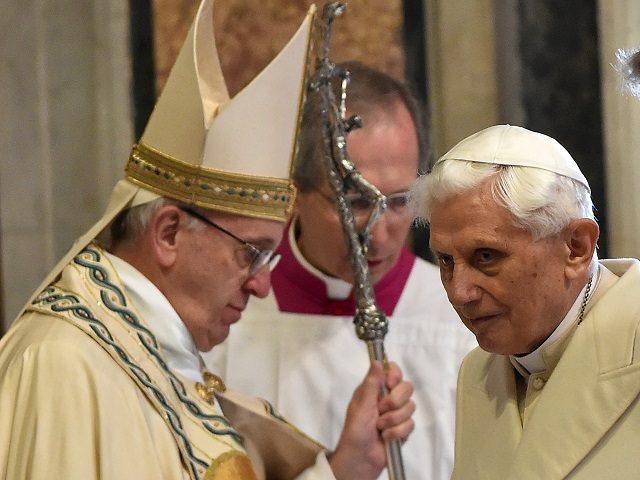ROME — Pope Benedict’s final book was published several weeks after his December 31st death, following instructions from the late pontiff himself.
Each of the essays comprising the 190-page volume was written after Benedict’s 2013 resignation and they cover a broad range of topics, from the nature of religion to Christian-Islamic dialogue to an important essay on monotheism and tolerance.
According to theologian Elio Guerriero, to whom Benedict entrusted the publication of the work, Benedict directed that the essays be published but only after his death, citing the “murderous clamor” that accompanied the publication of other writings after his resignation.
“The fury of the circles that oppose me in Germany is so strong that the appearance of the slightest word of mine immediately provokes a murderous clamor on their part,” Benedict wrote in a letter to Guerriero.
Although the book is being touted by some as a “posthumous attack on Francis,” in reality it contains a series of theological reflections and nowhere directly criticizes the current pope or his leadership. If anything, Benedict’s strongest language seems directed at positions taken by his fellow Germans rather than Francis.
Some attention has been given to Benedict’s remarks about the presence of “homosexual cliques” in Catholic seminaries that created a climate not conducive to “preparation to the priestly vocation,” but that particular essay on the clerical abuse crisis had already been published and widely commented on in 2019.
In the second chapter of the book, Benedict addresses “the growing intolerance” toward Christianity in the West, often carried out in the name of tolerance itself.
“The intolerance of this apparent modernity towards the Christian faith has not yet turned into open persecution,” he wrote. “But it presents itself in an ever more authoritarian manner, aiming to achieve, with the legislation that follows, the extinction of what is essentially Christian.”
Benedict warned of a “radical manipulation of human beings” and “the distortion of the sexes by gender ideology,” all in the name of tolerance.
Countering an argument made by a German theologian linking monotheism to intolerance, Benedict contended that “the authentic counterweight to every form of intolerance” is, instead, Christ crucified.
The book has so far only been published in Italian, under the title Che cos’è il Cristianesimo? but it is slated for publication in English by Ignatius Press.

COMMENTS
Please let us know if you're having issues with commenting.